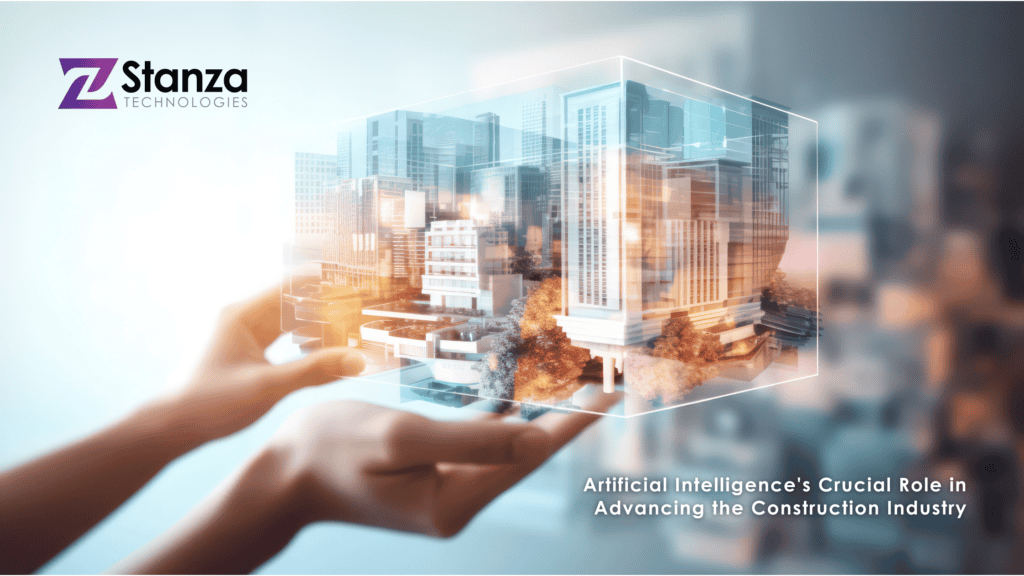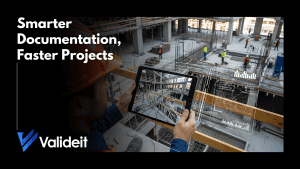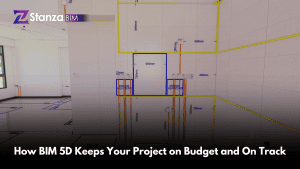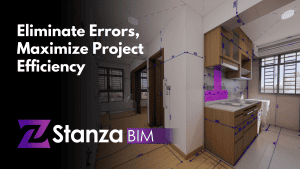Artificial Intelligence (AI) is rapidly becoming a cornerstone in different industries, reshaping the way businesses operate and enhancing overall efficiency. While it might seem unconventional to think of AI in the construction sector, its applications transform traditional practices. In a world where operational improvements and efficiency enhancements are sought after in every business, AI is introducing a high-tech touch to the hands-on construction field.
Understanding AI: Artificial Intelligence (AI) stands as a sophisticated computer system that can tackle intricate tasks. It comprehends natural language, identifies patterns, problem-solves, and makes decisions autonomously. By learning from extensive datasets, AI hones its predictive abilities, concluding without requiring human intervention. This transformative technology represents a leap forward in computational capabilities, significantly impacting various industries by automating cognitive functions and revolutionizing how complex tasks are approached and executed.
How Does the Construction Sector Fare in This Scenario? In Artificial Intelligence, the construction sector is undergoing a notable transformation. With its prowess in navigating building codes, optimizing project management, enhancing on-site safety, and refining design processes, AI becomes a pivotal ally. Once reliant on manual processes, the construction industry now witnesses streamlined operations and proactive risk mitigation. Embracing AI, it thrives in an era where innovation and efficiency converge, marking a paradigm shift towards a more advanced and technology-driven construction landscape.
Decoding Building Regulations: Navigating the complex world of building codes and permits can be a daunting task. Here, AI can help by simplifying the parsing process through building codes. By quickly identifying relevant codes, AI saves companies from potential legal complications, ensuring that every construction project complies with the necessary regulations. This not only streamlines the permitting process but also reduces the associated headaches and delays.
Overseeing the Project Journey: Construction projects go through various stages, and AI can be critical in each phase. Leveraging the capabilities of neural networks, AI acts as a virtual project manager, classifying the progress of different sub-projects. By spotting potential issues early on, AI enables proactive problem-solving, fundamentally changing the construction game. This capability enhances project management, leading to more efficient and successful outcomes.
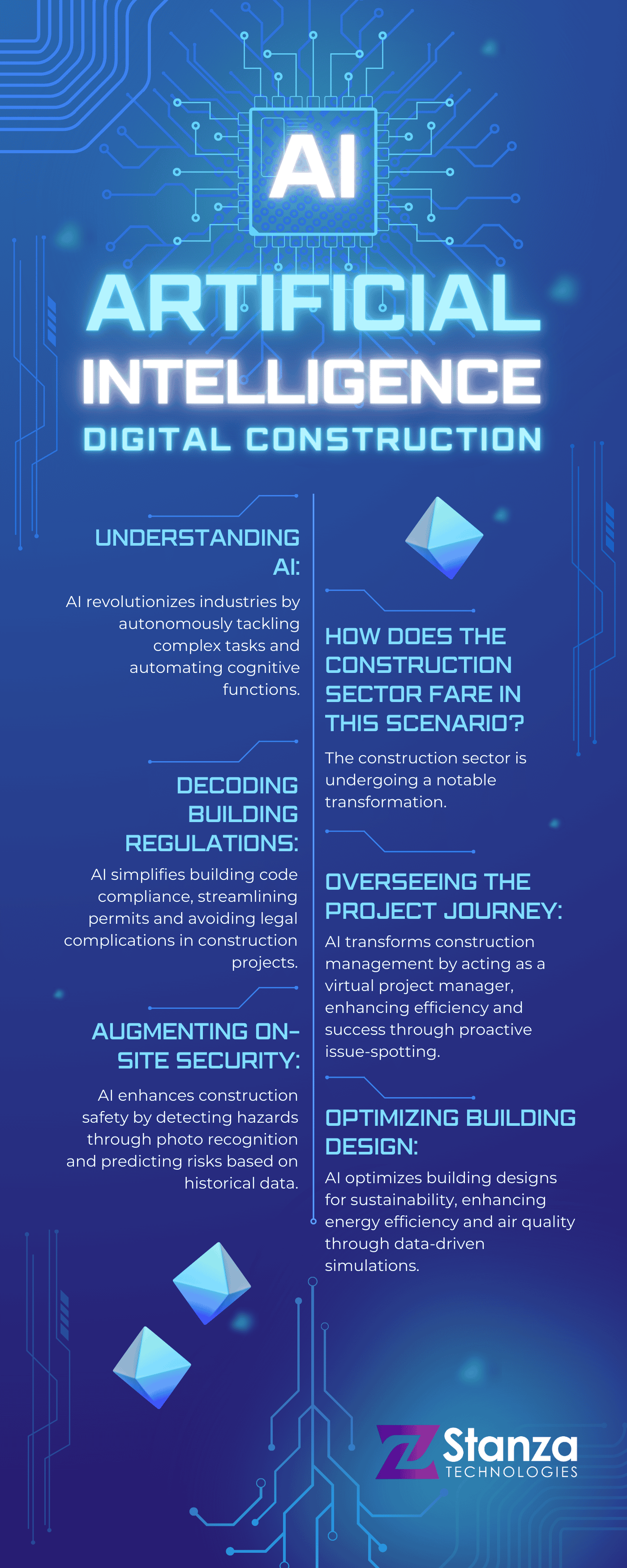
Augmenting On-Site Security: Arguably, one of the most critical contributions of AI in construction is its impact on safety. AI detects safety hazards such as inadequate protective gear or hazardous working conditions through advanced photo recognition. Trained on proper job procedures, AI identifies flaws in activities, contributing to a safer work environment. By analyzing historical data, AI predicts project risks, helping teams avoid potentially dangerous situations.
Optimizing Building Design: Beyond safety, AI’s capabilities extend to optimizing building designs for energy efficiency and air quality. With access to vast amounts of building data, AI employs simulations to suggest improvements in structures and designs. This ensures the longevity and sustainability of constructions and aligns with global efforts towards environmentally conscious practices.
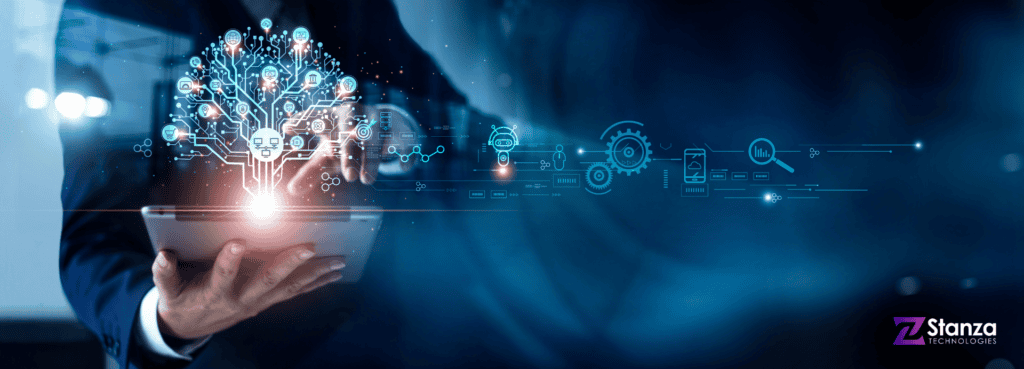
As AI continues to evolve, its role in reshaping the construction industry becomes increasingly apparent. From simplifying complex tasks like parsing building codes to revolutionizing on-site safety and optimizing designs, AI is a game-changer in the construction landscape. Embracing these technological advancements will enhance efficiency and pave the way for a safer and more sustainable future in the construction field.
